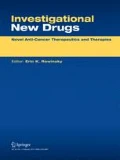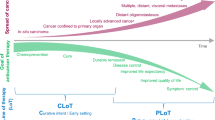Summary
Clinical trials in oncology have become increasingly complex because of incorporation of predictive biomarkers and patient selection based on molecular profiling of tumors. We have examined the change in procedures and work intensity in phase 1 oncology trials over the years with several parameters used as surrogates of complexity. Categories that were included as events were clinical evaluations, pharmacokinetic (PK) laboratory tests, non-PK laboratory tests, specific molecular or histological characteristics, questionnaires and subjective assessments, routine clinical and physical examinations, imaging, invasive procedures and others. The information was extracted using a standardized form including study type, tumor type, information on agent, participant characteristics and study mandated events during the first 3 cycles of each protocol. A total of 102 phase I oncology and hematology study protocols that were active at a single institution in 1996, 2006 and 2016 were evaluated. In 2016, there were significantly more (P < 0.05) median number of procedures, outpatient tests, subjective assessments, PK’s, molecular profiling, biopsies and medication dispensing times. There were higher median numbers of procedures in studies in hematologic malignancies, testing immunotherapies and those with over 15 inclusion or exclusion criteria. These values also differed significantly (P < .005) when the median values were compared in nonparametric tests. Our results suggest that study related procedures in cancer phase I trials have substantially increased over the last two decades. The successful conduct of early-phase oncology clinical trials in future will require additional research resources.


Similar content being viewed by others
References
Parulekar WR, Eisenhauer EA (2002) Novel endpoints and design of early clinical trials. Annals of oncology : official journal of the European Society for Medical Oncology / ESMO 13(Suppl 4):139–143
Gelmon KA, Eisenhauer EA, Harris AL, Ratain MJ, Workman P (1999) Anticancer agents targeting signaling molecules and cancer cell environment: challenges for drug development? J Natl Cancer Inst 91(15):1281–1287
Malik L, Mejia A, Parsons H, Ehler B, Mahalingam D, Brenner A, Sarantopoulos J, Weitman S (2014) Predicting success in regulatory approval from phase I results. Cancer Chemother Pharmacol 74(5):1099–1103. https://doi.org/10.1007/s00280-014-2596-4
Weber JS, Levit LA, Adamson PC, Bruinooge S, Burris HA, Carducci MA, Dicker AP, Gonen M, Keefe SM, Postow MA, Thompson MA, Waterhouse DM, Weiner SL, Schuchter LM (2015) American Society of Clinical Oncology policy statement update: the critical role of phase I trials in cancer research and treatment. J Clin Oncol Off J Am Soc Clin Oncol 33(3):278–284. https://doi.org/10.1200/jco.2014.58.2635
Getz KA, Stergiopoulos S, Marlborough M, Whitehill J, Curran M, Kaitin KI (2015) Quantifying the magnitude and cost of collecting extraneous protocol data. Am J Ther 22(2):117–124. https://doi.org/10.1097/MJT.0b013e31826fc4aa
Getz KA, Campo RA, Kaitin KI (2011) Variability in protocol design complexity by phase and therapeutic area. Drug Inf J 45(4):413–420
Craft BS, Kurzrock R, Lei XD, Herbst R, Lippman S, Fu SQ, Karp DD (2009) The changing face of phase 1 Cancer clinical trials. Cancer 115(8):1592–1597. https://doi.org/10.1002/Cncr.24171
Emanuel EJ, Schnipper LE, Kamin DY, Levinson J, Lichter AS (2003) The costs of conducting clinical research. J Clin Oncol Off J Am Soc Clin Oncol 21(22):4145–4150. https://doi.org/10.1200/jco.2003.08.156
Roche K, Paul N, Smuck B, Whitehead M, Zee B, Pater J, Hiatt MA, Walker H (2002) Factors affecting workload of cancer clinical trials: results of a multicenter study of the National Cancer Institute of Canada clinical trials group. J Clin Oncol Off J Am Soc Clin Oncol 20(2):545–556
Gentleman R, Ihaka R, Bates D (2009) The R project for statistical computing. URL: http://www.r-project.org/254. Accessed 11 Nov 2018
Getz KA, Wenger J, Campo RA, Seguine ES, Kaitin KI (2008) Assessing the impact of protocol design changes on clinical trial performance. Am J Ther 15(5):450–457. https://doi.org/10.1097/MJT.0b013e31816b9027
Mooney M (2008) Cooperative group clinical trials complexity funding: model development and trial selection process. In: Clinical Trials and Translational Research Advisory Committee Meeting, Bethesda
Good MJ, Lubejko B, Humphries K, Medders A (2013) Measuring clinical trial–associated workload in a community clinical oncology program. J Oncol Pract 9(4):211–215. https://doi.org/10.1200/jop.2012.000797
Good MJ, Hurley PA, Mesfin E, National Cancer Institute, Rockville, MD, American Society of Clinical Oncology, Alexandria, VA, ASCO, Alexandria, VA (2014) The road to assessing clinical trial-associated workload. J Clin Oncol Off J Am Soc Clin Oncol 32:(suppl; abstr e17587)
Author information
Authors and Affiliations
Corresponding author
Ethics declarations
Grant support
Nil
Conflict of interest
None to declare. All authors had full control of all primary data, which are available for review upon request.
Ethical approval
All procedures performed in studies involving human participants were in accordance with the ethical standards of the institutional and with the 1964 Helsinki declaration and its later amendments or comparable ethical standards.
Welfare of animals
This article does not contain any studies with animals performed by the authors.
Informed consent
Not applicable.
Rights and permissions
About this article
Cite this article
Malik, L., Lu, D. Increasing complexity in oncology phase I clinical trials. Invest New Drugs 37, 519–523 (2019). https://doi.org/10.1007/s10637-018-0699-1
Received:
Accepted:
Published:
Issue Date:
DOI: https://doi.org/10.1007/s10637-018-0699-1




